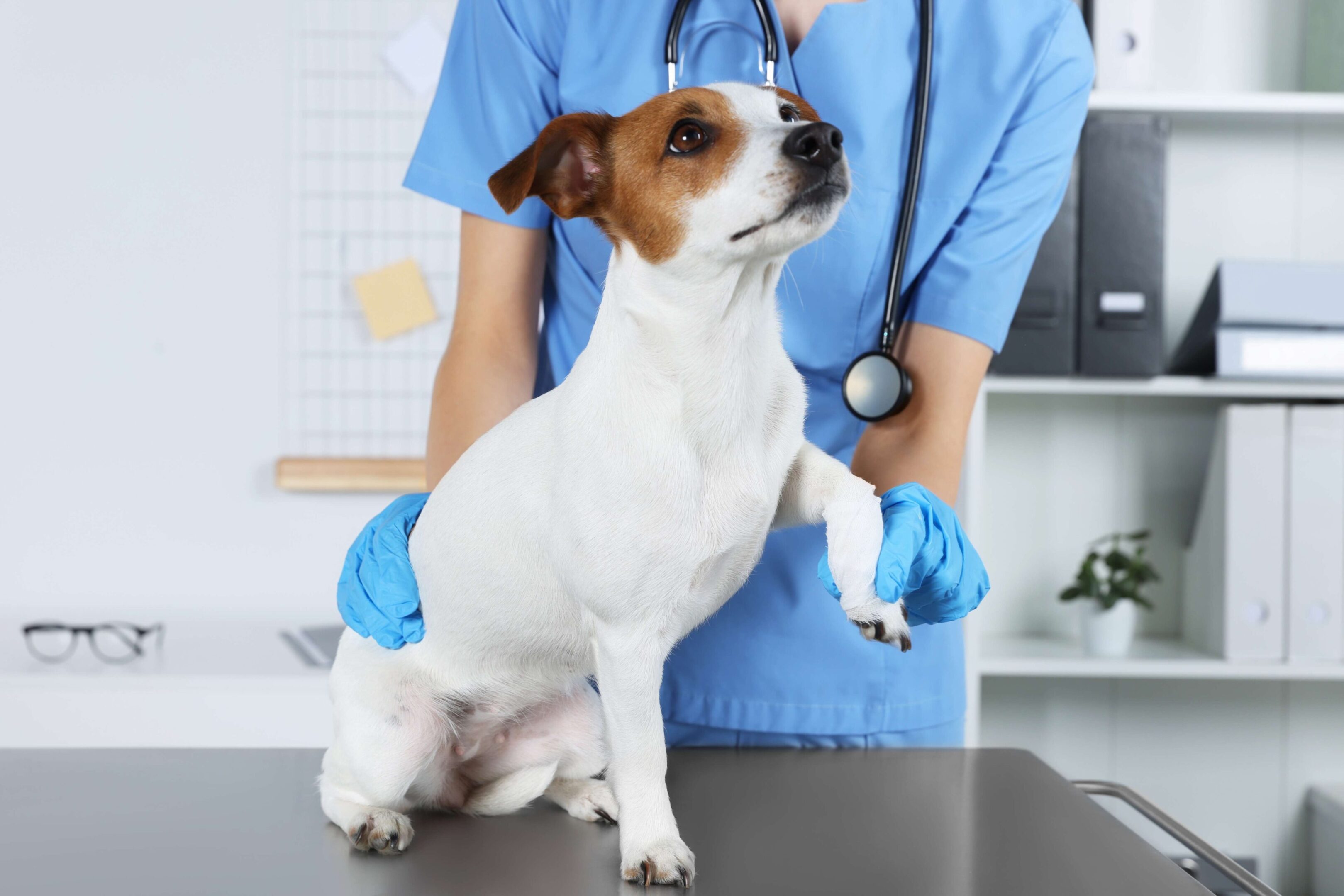Our Services
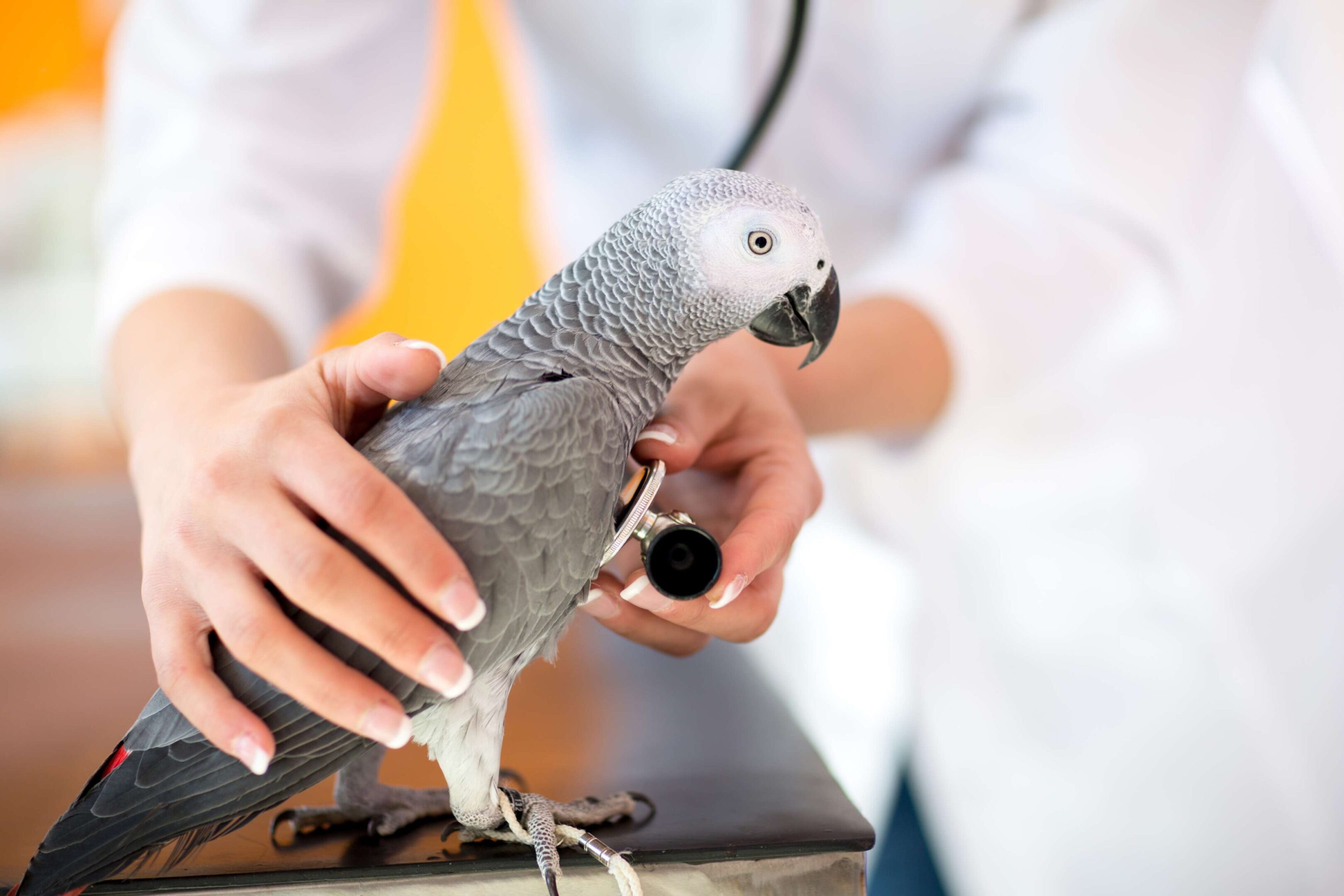
Exotics
Exotic pets and birds are also important members of many people’s families, and we want to make sure that they are treated with as much love, care, and compassion as our canine and feline family members. We provide state-of-the-art care for a variety of exotics including small rodents, reptiles, guinea pigs, rabbits, and ferrets. Our goal is to provide routine preventative care in a stress-free environment.
Most exotic pets are able to hide the signs and symptoms of underlying disease because it is considered a weakness out in the wild, which could increase their risk of becoming prey. This is why our doctors recommend bringing your exotic pets in for annual examinations. These examinations are used to evaluate your pet’s overall health and to check for any abnormalities, weight changes, and varying nutritional needs. When any of these conditions occur and are apparent to their pet parents, the disease has already progressed significantly, making it difficult to treat. Birds, in particular, are sensitive to health conditions and will drop weight quickly when something is not right. This initial weight loss may not be visible, which makes annual visits so important for their health.
If you are adding an exotic pet to your family, it is important for them to receive a new pet exam because it will help us create a baseline of health for your new family member. This also provides an opportunity to ask any questions and get counseling on the specific needs your new pet will require to obtain and maintain a long and healthy life. The new pet exam would include:
- A complete physical examination
- Husbandry and nutritional counseling
- Disease screening
- as well as any laboratory testing that may be needed
We recommend that you come in for a new pet exam as soon as you add an exotic pet to your family so we can start building a relationship and understanding of your pet’s needs from the beginning.
Emergencies
Certain situations can arise in which your pet’s health is at urgent risk. Our veterinarians will be here for you in order to help handle those emergency situations. Our doctors are trained to handle any emergencies that may occur during our business hours and if intensive care or specialist care is needed for your pet, our doctors and staff are able to stabilize them and refer you to a critical care specialist or 24-hour emergency hospital.
Emergency situations can include traumatic injuries or illnesses of all kinds. Some of these may include:
- Poisonings such as your pet consuming a toxic plant, rat/mouse bait, chemical burns, or eating chocolate or grapes
- Respiratory emergencies
- Seizures or coma
- Diabetic Crises
- Sudden or Severe illness
- Trauma such as being hit by a car or breaking a leg
It can be hard sometimes to decipher what is considered an emergency and what can wait. Below is a list of situations that would be considered an emergency and your pet should be seen immediately:
- Prolonged heat exposure, overheating, or heat stroke
- Bleeding or unexplained bruising
- Difficulties breathing or severe coughing
- Serious wound
- Loss of consciousness
- Seizures
- Suspected broken limb
- Signs of extreme pain
- Inability to move or sudden weakness
- Blood in vomit, feces, or urine
- Any injury to the eye
- Severe vomiting, retching, or diarrhea
- Ingestion of a foreign object, drug, poison, or unknown substance
- Swollen, hard, or painful abdomen
- Straining to urinate, especially in male cats
- Labor is not progressing
- Unusual or erratic behavior
If you are concerned at any time about your pet, please do not hesitate to give us a call. We are happy to counsel you on the best course of action for you and your pet.
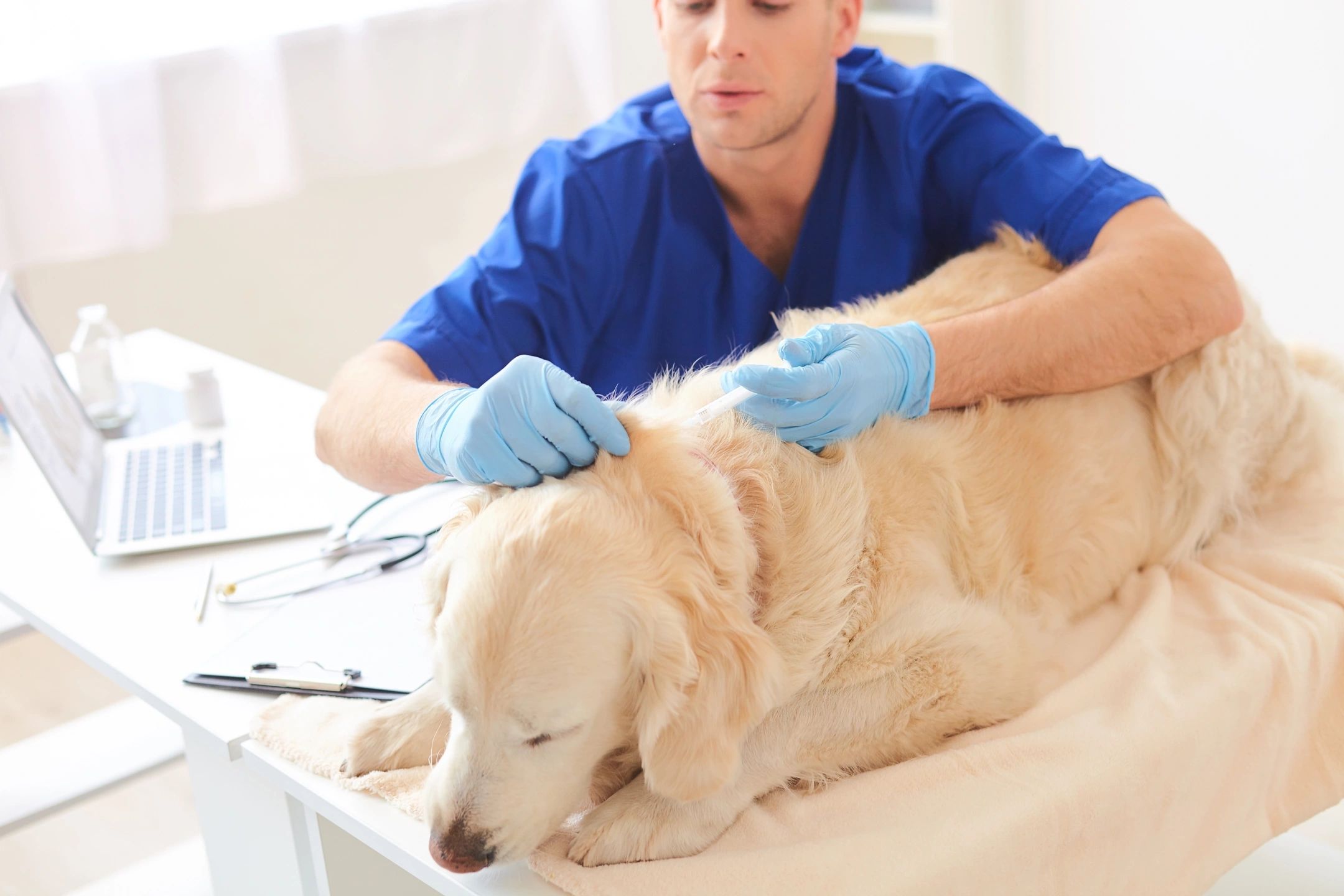
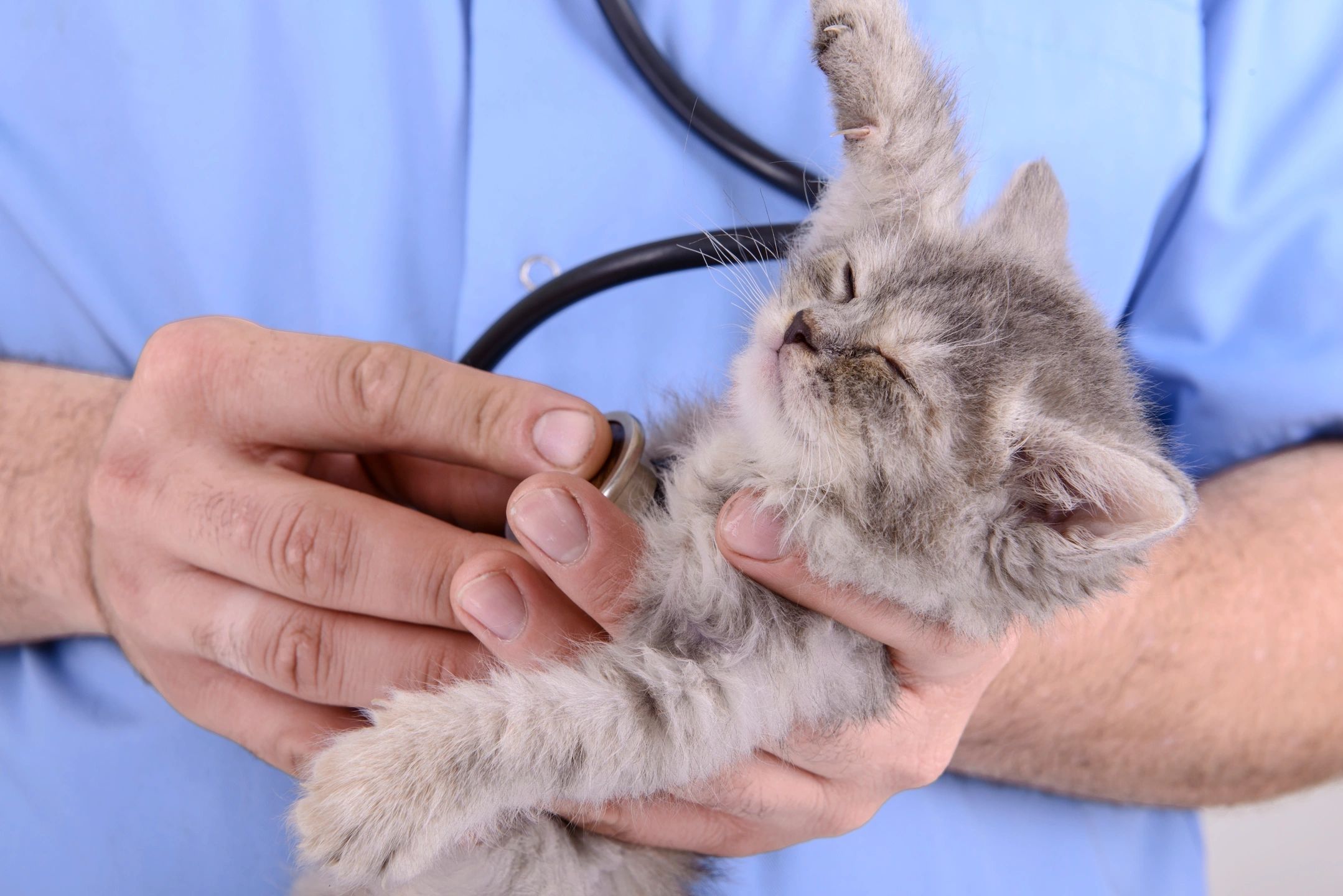
Surgery
Our goal is to provide a comfortable and pain-free experience for your pet through personalized treatment and unparalleled care. Before your pet receives surgery at our clinic, our doctors will need to conduct an exam in order to assess their ability to handle anesthesia as well as evaluate that surgery is the best option. Once they have concluded that surgery is optimal for your pet, they will develop a surgical treatment plan that gives your pet the best care possible while making it financially feasible for you. Once the surgical treatment plan is agreed upon, you can set up a surgical date with the front desk either on the day of the appointment or by phone.
The night before a surgical procedure, it is important to not give your pet food after 10 pm, or as discussed with your doctor. The morning of your pet’s surgery, they are not allowed to have water. This is to ensure that your pet can be anesthetized safely and helps prevent them from vomiting while sedated, which can complicate the surgery and their anesthetic experience. Once they are brought to the hospital and under our care, your pet will be given a pre-medication before they are anesthetized in order to keep them calm and relaxed. Once they are anesthetized, they will be prepped for surgery and brought to our top-of-the-line surgical suite where the procedure will take place.
Anesthesia and surgical time will be dependent on the type of procedure your pet is undergoing. Routine procedures such as spays and neuters will take less time to complete compared to more intensive and advanced surgeries such as fractures or tumor/ cancer removal procedures. Once your pet’s surgery is completed, and they have recovered from anesthesia, your doctor will let you know how the procedure went and when you will be able to pick up your pet.
After your pet’s surgery, they will require some care at home, which will be discussed with you when you come to pick up your pet. At-home care can range from keeping the surgical site clean and dry, to providing warm or cold compresses, or even small levels of physical therapy. Whatever the at-home care may be, our doctors and staff will give you the education and resources to complete it successfully. Some patients will need to return to our clinic for follow-up appointments to remove sutures or to assess their pet’s progress after the procedure. These are to make sure your pet is comfortable and pain-free after surgery.
Dentistry
Dental disease is the most common disease among dogs and cats throughout the United States. At our practice, we make sure that your pet’s dental health is a top priority and is treated appropriately. We use human-grade dental equipment during our dog and cat dental procedures and have high-resolution digital dental radiography so we can treat dental disease at its root.
It can be hard to decipher whether your pet is in need of a dental. If you are noticing any of the following signs or symptoms, please bring your pet in for an evaluation to assess their needs.
- Bad Breath
- Changes to eating habits, or not eating
- Yellow or brown teeth
- Swollen or bleeding gums
- Growths on the gums or tongue
- Excessive drooling
- Pawing at their mouth
- Tooth loss
If your pet is exhibiting any of these signs or symptoms, please make an appointment to see one of our doctors for a dental exam. The initial dental exam will be conducted while your pet is awake, which will help our doctors get an idea of your pet’s dental condition. Based on this, they will work with you to create a dental treatment plan that is both in the best care of your pet but also financially feasible for you. They may require pre-anesthetic blood work, which can usually be done in the clinic to confirm your pet doesn’t have any underlying conditions that may complicate their dental cleaning procedure.
Once your pet is cleared for anesthesia, and they are sedated for the procedure, your doctor will conduct another oral exam that is more extensive to assess the need for any dental radiographs, tooth removals, or other extra concerns outside a dental cleaning. Often, our doctors will use local anesthetic to make the procedure less painful and to reduce the amount of anesthesia needed for the procedure. Once the dental is completed and your pet wakes up from anesthesia, they will be released to go home. In most routine cases, no additional medications will be needed, but for some dental extractions or other complications, medications may be sent home with your pet.

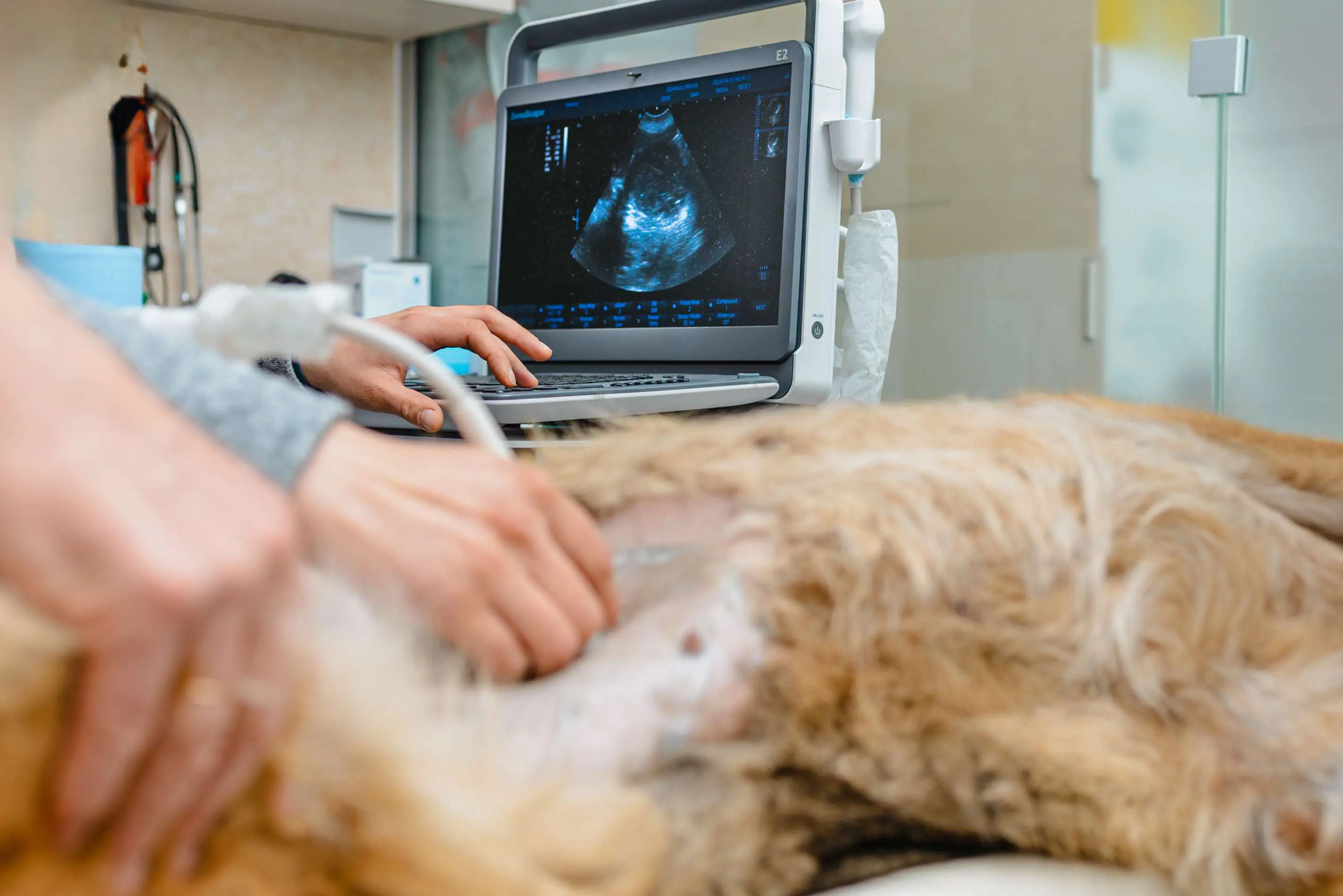
Internal Medicine
Internal medicine focuses on the internal body systems of your pets and their overall function. Certain diseases and health conditions are hard to detect externally and require advanced diagnostics like ultrasound. Other health problems may need long-term treatment and care from a veterinarian, such as heart disease or diabetes. We have the resources and education to provide your pet with long-term health care support so they can live the fullest life possible.
There are different facets of internal medicine in which your pet’s health condition may fall under. These different disciplines include:
- Cardiology
- Endocrinology
- Gastroenterology
- Hematology
- Immunology
- Infectious disease
- Nephrology/Urology
- Neurology
- Oncology
- Respiratory diseases
Depending on the signs and symptoms your pet is displaying, your doctor may request advanced diagnostics or procedures in order to evaluate deeper or to make a definitive diagnosis. Some of these procedures include:
- Abdominocentesis
- Arthrocentesis
- Bronchoalveolar Lavage
- Bronchoscopy
- Colonoscopy
- Cystoscopy
- Endo or Trans-tracheal washing
- Endoscopy for foreign body removal
- Esophagoscopy
- Supplemental feeding tube placement and management
Any procedure our doctors are unable to do within our clinic will be referred to external specialists.
Vaccinations
Vaccinations are an important part of your pet’s routine health care. Dog vaccinations are given as a series when they are puppies and then a booster vaccine every 1 to 3 years after for the rest of their lives. Here at the Bushwick Veterinary Center, our top priority is focused on stress-free preventative care to give your pet the healthiest and longest life possible.
Vaccines are an important part of your pet’s health because they can prevent many illnesses that affect pets. There are different vaccines for different diseases, and some of them are combined in order to reduce the number of vaccines your pet has to receive. Some vaccines are considered core vaccines because of the severity of the disease they prevent and/or because of the transmissibility of the disease from animals to humans. Below is a list of core vaccines for both dogs and cats:
For Dogs:
- Canine Parvovirus
- Distemper
- Canine Hepatitis
- Canine Rabies
For Cats:
- Panleukopenia (feline distemper)
- Feline Calicivirus
- Feline Herpesvirus type I
- Feline Rabies
There are also vaccines available based on your pet’s lifestyle. The need for these vaccines is evaluated during your conversation with your pet’s veterinarian based on the activities you conduct with your pet. Below is a list of the lifestyle-based vaccines:
For Dogs:
- Bordetella
- Borrelia Burgdorferi
- Leptospira Bacteria
- Canine Flu
For Cats:
- Feline Leukemia Virus
- Bordetella
- Chlamydophila felis
- Feline Immunodeficiency Virus
All states require proof of rabies vaccine because rabies is a virus that is transmissible from animals to humans. Talk to your veterinarian about the requirements for your pet and how often they will need to receive the rabies vaccine.
